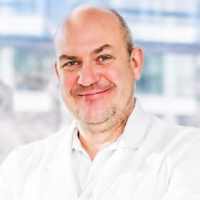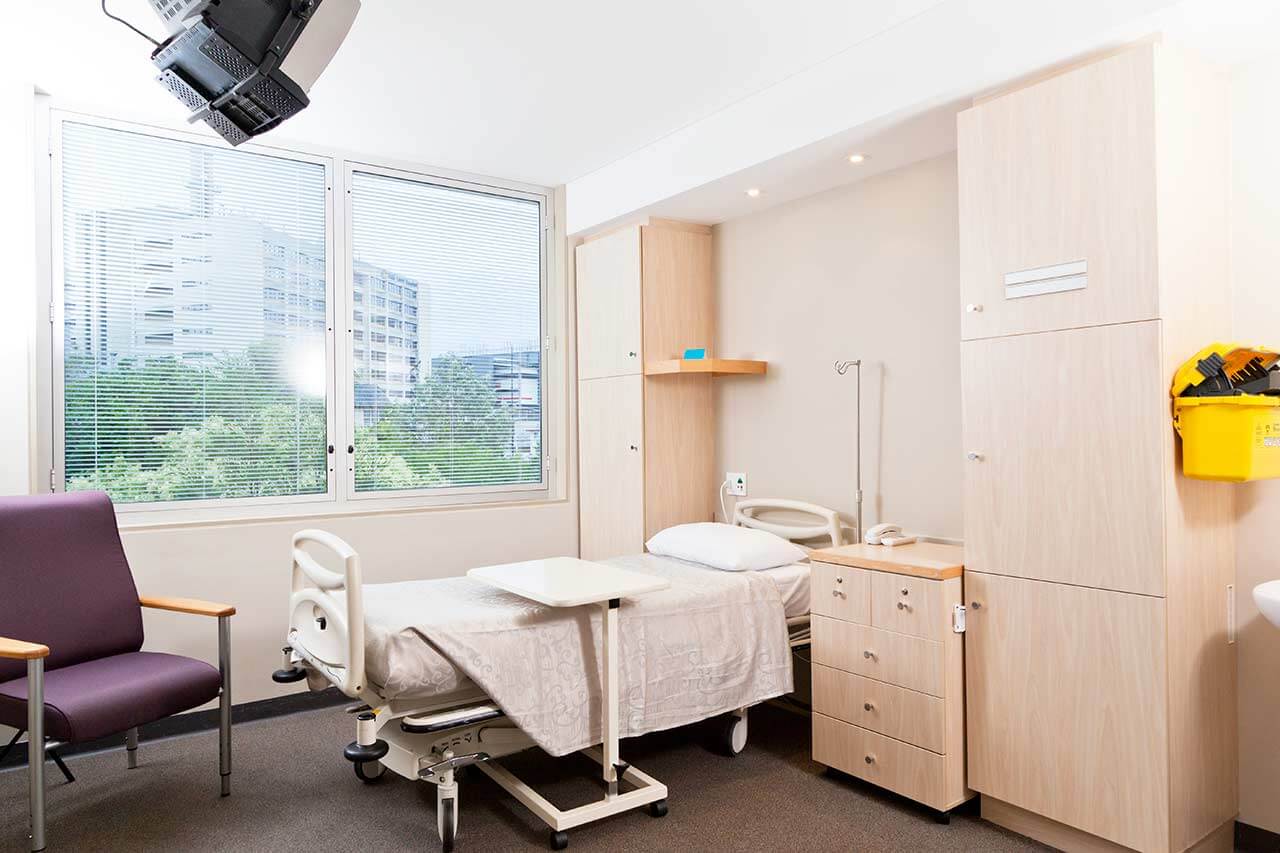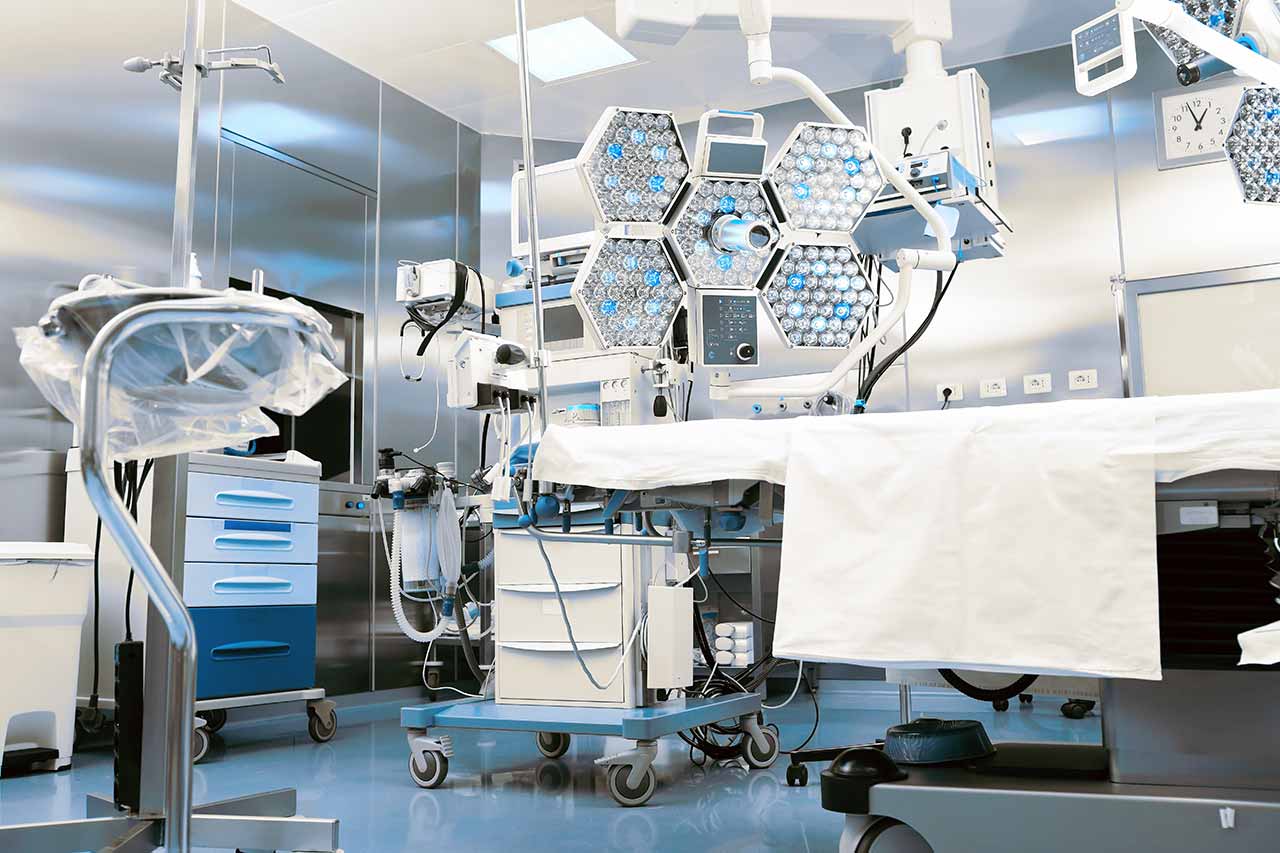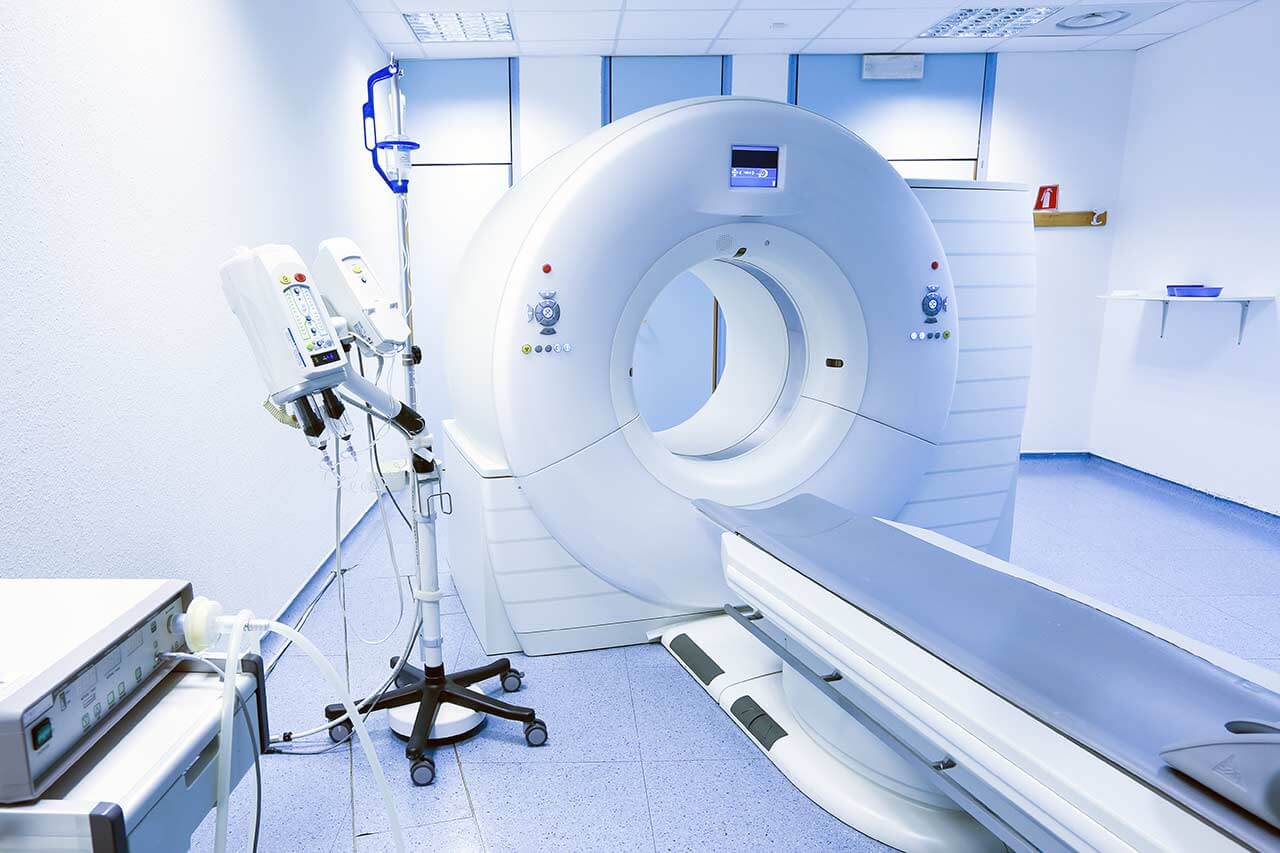
The program includes:
- Initial presentation in the clinic
- clinical history taking
- review of medical records
- physical examination
- urological examination
- laboratory tests:
- complete blood count
- clinical urine test
- biochemical blood analysis
- kidney function test
- inflammation indicators (CRP, ESR)
- indicators of blood coagulation
- pelvic ultrasound
- nursing services
- consultation of related specialists
- consultation of the chief physician and all leading experts
- development of individual treatment plan
- written statement
Required documents
- Medical records
- Penis photo
Service
You may also book:
 BookingHealth Price from:
BookingHealth Price from:
About the department
The Department of Adult and Pediatric Urology, Andrology at the Beta Clinic Bonn offers the full range of services in these medical fields. The main areas of the department's clinical activity include the treatment of cancer of the male reproductive system and urinary system in women and men, benign prostatic hyperplasia, urinary incontinence, and kidney stone disease. The department also admits young patients with urologic diseases, including phimosis, undescended testicles, and enuresis. In the field of andrology, the specialists at the medical facility provide consultations on men's health. The main focus is on the treatment of erectile dysfunction. The department has advanced diagnostic equipment and operating rooms with state-of-the-art technology to provide high-quality medical care. Many minor surgical interventions are performed on an outpatient basis. In most cases, urologists manage to perform surgical treatment using minimally invasive and laparoscopic techniques, thanks to which patients recover quickly in the postoperative period. The medical facility guarantees each patient a professional approach to his urological problem, a humane attitude, and support throughout the therapeutic process.
The department is headed by Prof. Dr. med. Sebastian Wille. According to the Jameda website ranking based on patient reviews, Prof. Wille ranks among the top 5 urologists in Bonn. The specialist also enjoys high prestige in professional circles throughout Germany and Europe.
One of the key areas of the department's work is the treatment of prostate, testicular, penile, kidney, and bladder cancers. When a patient with suspected cancer comes to the department, he undergoes comprehensive diagnostics, including laboratory tests, imaging tests, and a biopsy. It is worth noting that the department offers an innovative technique called fusion biopsy for men with suspected prostate cancer. There is also an in-house Gene Laboratory, which carries out genetic cancer testing for tumor profiling and selection of targeted therapy. If, based on the results of preliminary diagnostics, doctors diagnose cancer, the patient's clinical case is considered at an interdisciplinary tumor board with the participation of urologists, radiologists, radiation therapists, and other specialists. In most cases, the first-line therapy is surgery to remove a malignant tumor. Whenever possible, minimally invasive organ preservation operations are performed. For patients in the advanced stages of the oncological process, it may be necessary to completely remove the affected organ, such as the kidney or bladder. The operation is often supplemented with chemotherapy that is carried out by specialized oncologists. Experienced radiation therapists may also be involved in the therapeutic process if necessary.
A special focus in the department's clinical practice is the treatment of benign prostatic hyperplasia. Advanced minimally invasive Rezum water vapor therapy is used here for this purpose. An approach to the prostate gland is provided through the urethra without any skin or soft tissue incisions. Water vapor is administered into the prostate tissue through a thin plastic tube with a built-in camera. At the tip of the plastic tube is a small needle, which is used to deliver a metered amount of steam heated to 70 ºC to the pathological tissues of the prostate gland. The duration of the procedure is about 5 minutes. The main advantage of the Rezum procedure is the reduction of the prostate gland's size without any side effects. In addition, the treatment is completely painless and does not affect erectile or ejaculatory function. In this case, the patient also gets rid of urination disorders. Doctors can assess the final result three months after the completion of the treatment course.
The department also offers effective treatment for kidney stone disease. The pathology is characterized by the formation of stones in the urinary system. Kidney stones may cause a variety of symptoms, including renal colic, nausea and vomiting, pain during urination, blood in the urine, increased fatigue, and fever. During the preliminary diagnostics, the patient undergoes advanced laboratory urine and blood tests, ultrasound scans, computed tomography, and cystoscopy. If the diagnosis is confirmed, the attending physician will select the best treatment option. The department's urologists have modern treatment methods for kidney stone disease that allow the patient to get rid of stones without any surgical procedures. Treatment methods available here include drug dissolution of kidney stones, extracorporeal shock wave lithotripsy, percutaneous nephrolitholapaxy, and ureteroscopy with laser lithotripsy. The most effective treatment method is prescribed based on the specific clinical case and the severity of the disease.
The scope of tasks assigned to the department's doctors includes consultations for patients with andrologic diseases. Of particular interest to the department's specialists is the treatment of erectile dysfunction. Erectile dysfunction is a disorder in which a man cannot achieve or maintain an erection long enough to have sexual intercourse. In 95% of cases, doctors manage to help the patient with well-chosen drug therapy. In rare cases when drug therapy does not give the desired result, the patient may require the use of vacuum devices or injection therapy. The last line-therapy is penile implant surgery.
The department's range of medical services includes:
- Conservative therapy
- Drug therapy
- Extracorporeal shock wave lithotripsy, percutaneous nephrolitholapaxy and ureteroscopy with laser lithotripsy for kidney stone disease
- Vacuum therapy and injection therapy for erectile dysfunction
- Surgical treatment
- Outpatient surgical procedures
- Circumcision in adults
- Urethral dilatation (bougienage)
- Botox injections for overactive bladder
- Sterilization (vasectomy)
- Inpatient surgical procedures
- Prostate resection
- Classical transurethral resection of the prostate (TURP)
- Transurethral resection of the prostate (TUR) with preservation of ejaculation
- Laser and plasma vaporization of the prostate
- Minimally invasive Rezum water vapor therapy for prostate adenoma
- Dilatation (bougienage) and reconstructive surgery for urethral diseases
- Extracorporeal shock wave lithotripsy, minimally invasive and open surgery for kidney stone disease
- Nephrectomy and organ preservation surgery for kidney cancer
- Transurethral resection of a bladder tumor and radical cystectomy for bladder cancer, followed by the formation of a new bladder, for example, from the ileum tissues
- Penile implant surgery for erectile dysfunction
- Surgical resection of testicular tumors
- Surgical resection of penile tumors
- Surgery for urinary incontinence
- Surgery for pelvic organ prolapse
- Foreskin circumcision in children
- Surgery for cryptorchidism (undescended testicle) in children
- Prostate resection
- Outpatient surgical procedures
- Other medical services
Curriculum vitae
Prof. Dr. med. Sebastian Wille studied medicine in Marburg and Munich. He defended his doctoral thesis with honors. This was followed by his board certification and habilitation on the following subject: "Urinary incontinence after a radical prostatectomy". In 2014, he received his professorship. During his medical training, he was invited to work as a visiting doctor in Manchester (UK), Preston (UK), Bern (Switzerland), Balboa (Spain), Marseille and Lyon (France), Vienna (Austria), and Florence (Italy). In addition, Dr. med. Wille has served for many years as Managing Senior Physician and Deputy Head of the Department of Urology at the University Hospital Cologne. In 2015, he was appointed Head of the Department of Adult and Pediatric Urology, Andrology at the Beta Clinic Bonn .
Prof. Wille provides the full range of diagnostic and therapeutic services in urology. Special attention is paid to the surgical treatment, the treatment of bladder dysfunction, including urinary incontinence and pelvic floor muscle weakness, as well as the treatment of kidney, bladder, prostate, and testicular cancers. Other priority areas include andrological diseases and reconstructive urology, including sex reassignment surgery.
Prof. Wille founded the Urinary Incontinence Center. He also contributed to the development of another Urinary Incontinence Center and the Prostate Center. He also invented the measurement capsule for long-term urodynamic testing without the use of a catheter (see YouTube: wille wica).
He is a member of many national and international specialized urological societies, including the German Society of Urology (DGU), the European Association of Urology (EAU), and the International Continence Society (ICS). He is also widely recognized as a leading specialist in the area of his specialization. In addition, Prof. Wille is the author and co-author of more than 120 scientific papers and publications. He has two drug patents and regularly lectures at national and international congresses and symposiums. He is also a member of Astellas Overactive Bladder.
Photo of the doctor: (c) Beta Klinik Service-, Verwaltungs- und Forschungs- GmbH
About hospital
The Beta Clinic Bonn is a modern private healthcare facility with 20 specialized departments. In addition, the clinic cooperates with 30 independent doctors of various specializations, most of whom have their own private practices. The doors of the clinic first opened for patients in 2008. Since that time, the medical facility has expanded significantly and achieved outstanding success. It harmoniously combines state-of-the-art equipment, high levels of competence among doctors, and comfortable infrastructure. All these possibilities make it possible to provide patients with high-quality medical care in accordance with modern European standards. The work of the medical team at the clinic is based on the following principle: "Our task is to take care of the health of patients." The clinic provides comprehensive treatment, taking into account the individual needs and wishes of each patient.
The hospital has an excellent diagnostic base: rooms for instrumental diagnostics, imaging tests, and endoscopic procedures. The medical complex also has in-house laboratories with advanced equipment. The clinic's doctors have the opportunity to perform comprehensive diagnostics in the shortest possible time and detect the slightest pathological changes in the work and structure of the internal organs. When considering the diagnostic results in complex clinical cases, physicians from related specialties are often involved in the process so that all important aspects are taken into account when developing a treatment regimen for a patient.
The therapeutic options at the clinic are quite diverse. At the same time, doctors always strive to keep pace with innovations, carrying out treatment using the most modern and sparing techniques. The operating rooms at the clinic have advanced computer equipment, navigation devices, monitoring systems, surgical microscopes, special tools, and equipment for laparoscopic and endoscopic interventions, as well as laser systems. The clinic also has an in-house Rehabilitation Center, where patients undergo physiotherapy and therapeutic exercises.
The clinic is expanding more and more every year. Innovative developments in diagnostics and treatment are immediately introduced here. It is worth noting that the clinic is a pioneer in Germany in advanced laser treatment for epilepsy. The therapy was implemented into clinical practice in 2019 and has been successfully applied here since then.
Photo: (с) depositphotos
Accommodation in hospital
Patients rooms
The patients of the Beta Clinic Bonn live in comfortable single rooms. Each room has a separate bathroom with a shower and toilet. The rooms have a modern design and meet the standards of a high-class hotel. For the convenience of patients, the rooms are equipped with electrically adjustable beds, air conditioning, satellite and Internet TV, a telephone, and Wi-Fi.
The clinic also offers accommodations in enhanced comfort rooms. Such patient rooms have a more refined design. In addition, they are very spacious. Enhanced comfort rooms have a minibar, daily fresh fruit, and a special dinner menu. Most windows of the clinic's patient rooms offer a beautiful view of the Rhine River and beautiful green landscapes.
Meals and Menus
The patients of the clinic are offered balanced, delicious food: a buffet breakfast, a hearty three-course lunch, and a light dinner. Also, for dinner, one can taste special offers from the chef at the hospital restaurant, which, if desired, can be served to the patient room.
Further details
Standard rooms include:
Accompanying person
Your accompanying person may stay with you in your patient room or at the hotel of your choice during the inpatient program.
Hotel
You may stay at the hotel of your choice during the outpatient program. Our managers will support you for selecting the best option.
In the immediate vicinity of the clinic is the Kameha Grand, a five-star hotel. The exterior and interior of the hotel impress with their beauty. In addition, the hotel is famous for its excellent service. The hotel is located on the banks of the Rhine and offers picturesque views from its windows.





